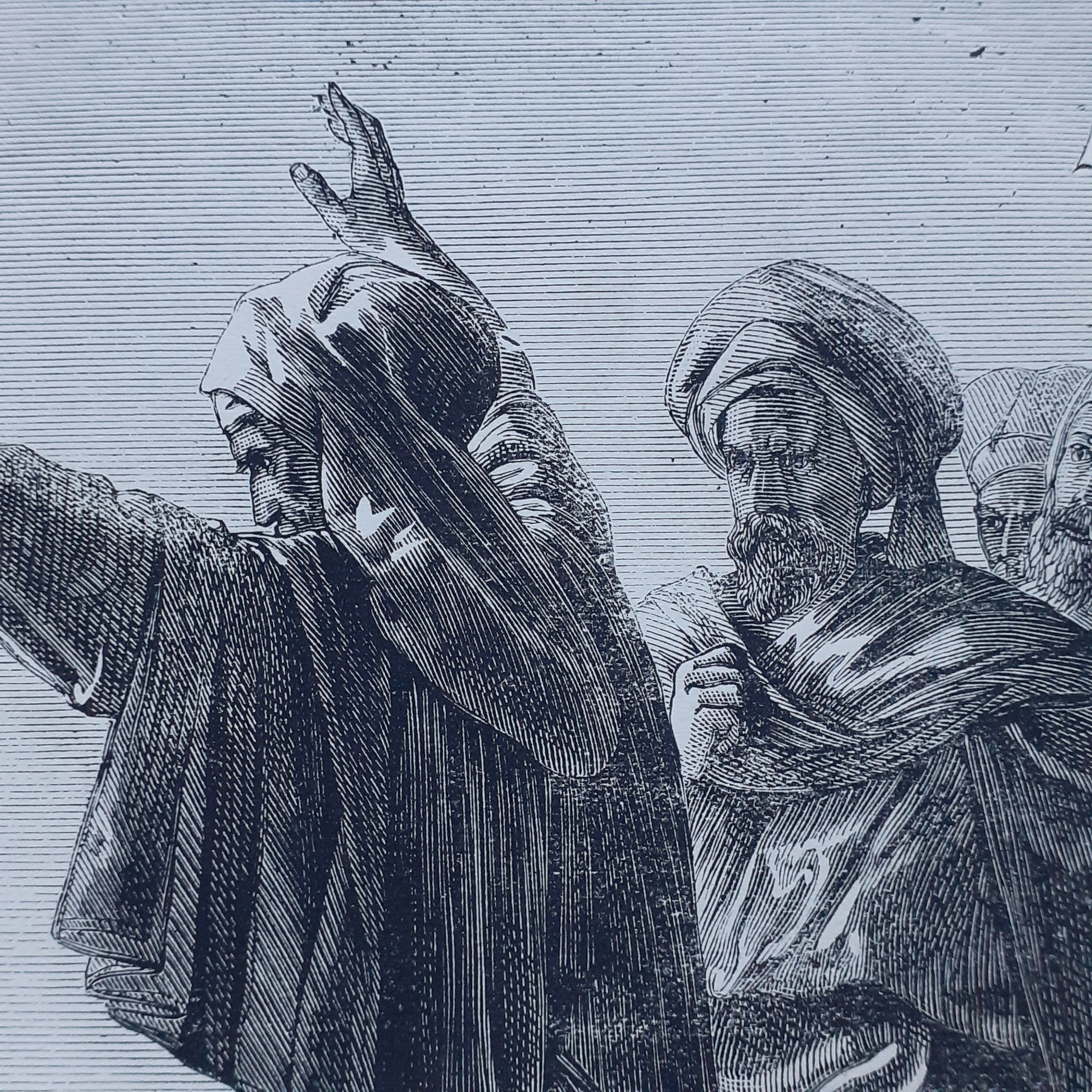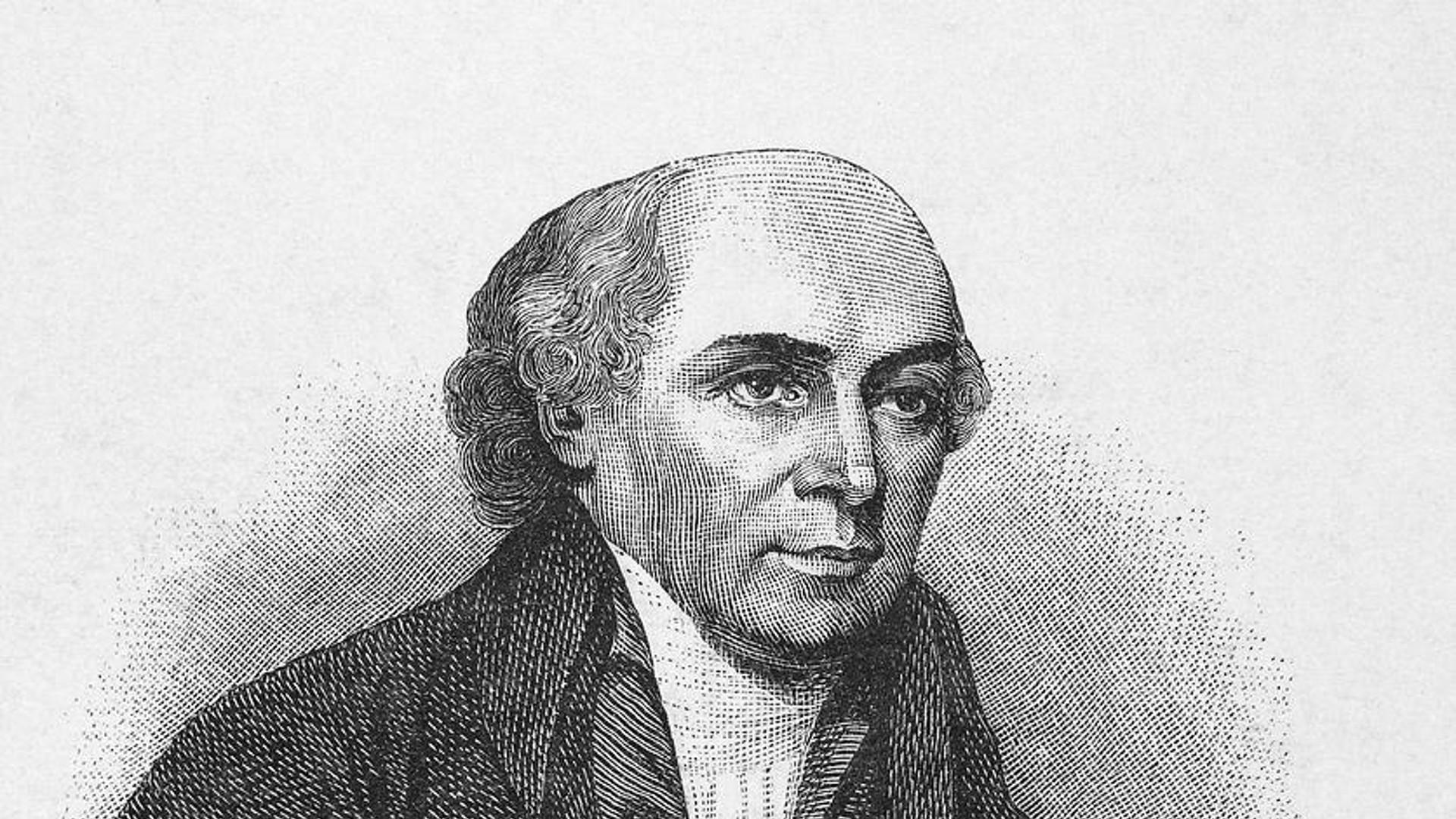
admin / Uncategorized / 0
![]()
What?
What is family worship? The idea of ‘family worship’ is that of gathering together as a family in order to learn of God, worship God, and pray to God.
“Happy is that family where the worship of God is constantly and conscientiously maintained.” (John Newton)
Why?
 This call to worship the Lord as a family is rooted in both Old and New Testament Scripture. It is one of the foundational elements of a strong Christian family that is tied to the parents responsibility to train their children in the ways of the Lord:
This call to worship the Lord as a family is rooted in both Old and New Testament Scripture. It is one of the foundational elements of a strong Christian family that is tied to the parents responsibility to train their children in the ways of the Lord:
Deut. 6:4-7- “Hear, O Israel: The LORD our God is one LORD: And thou shalt love the LORD thy God with all thine heart, and with all thy soul, and with all thy might. And these words, which I command thee this day, shall be in thine heart: And thou shalt teach them diligently unto thy children, and shalt talk of them when thou sittest in thine house, and when thou walkest by the way, and when thou liest down, and when thou risest up.”
Eph. 6:4- “And, ye fathers, provoke not your children to wrath: but bring them up in the nurture and admonition of the Lord.”
Fathers, especially, are called to take the lead in this area of spiritual leadership within the home! The father as the head of the household bears the greatest responsibility for the spiritual state of his family. Part of their responsibility is to lead their families in the worship of God.
Part of that involves faithfully bringing your family to church where the Bible is taught! But it also extends into the home and involves finding time to gather the family and worship God. Family worship is not a complicated thing. It is something that every family is capable of doing if they are willing to prioritize it.
How?
There are really three minimum ingredients to family worship:
Read the Bible! Sing to the Lord! Pray!
“They that pray in the family do well; they that pray and read the Scriptures do better; but they that pray, and read, and sing do best of all.” (Henry)
Here are some practical tips with family worship:
-Keep is Brief! Family worship is not a good time to practice an hour-long sermon on your kids! There is no set time and there is no reason to drag it out beyond what it necessary. Considering the ages of your children will help you determine the length of family worship.
-Keep is Consistent! This will likely be the most difficult part of family worship. It is easy to put this on the back-burner of your life and neglect it. Isn’t it true that we all make time for what is important to us? If working out is important to you, you are going to find a way to do it. If hunting is important to you, you are going to make sure it fits into your schedule. It is the same thing with family worship! If family worship is important to you, you are not going to let other things crowd it out. You are going to put it on the schedule and make it a habit!
-Keep it Focused! Keep the main thing the main thing! Put away phones; take out headphones; turn off the TV/radio; keep the focus on God’s Word. Make sure all are participating. Don’t allow your children to skip family worship or be distracted with other things. Family worship is actually a great opportunity to train little ones in how to participate and worship in the church service!
With Father’s Day approaching, let me challenge fathers and husbands to take charge in this area of your home life! If you haven’t been leading your family in worship, repent and begin today! Let me challenge wives and children to encourage your husband or father in his desire to lead his family spiritually!
~Pastor Aaron Francis
admin / Uncategorized / 0
There is a false teaching today that claims that “health, wealth, and prosperity” are a sign of God’s blessing upon a person. Those who twist the Scripture to promote this teaching reveal what their true motive is- “monetary gain.” Motivations, however, are not always displayed out in the open. Although our motivations may be hidden to others, they are always seen clearly by God.

In Numbers 22, we are introduced to a mysterious character named Balaam. In this chapter, the children of Israel are nearing the end of their 40 years of wandering and had come to a land called Moab. The king of Moab, Balak, had heard of the Israelites and was afraid. He knew he couldn’t defeat them by physical force, so he offered Balaam money to curse the people. At first, Balaam appeared to be a true and obedient prophet of God who obeyed His command and refused to see Balak. Balaam, however, was commanded to go upon the second request to God. On the surface, Balaam obeyed the voice of the Lord. In chapters 23 and 24, Balaam’s declarations are given. Every time he opened his mouth, he blessed the people of God, rather than cursing them. Balaam’s motivation seemed sincere, but other places in Scripture reveal otherwise. God would not permit Balaam to curse the people openly. Therefore, Balaam cursed them secretly. Revelation 2:14 says, “…Balaam…taught Balac to cast a stumblingblock before the children of Israel, to eat things sacrificed to idols, and to commit fornication.” Balaam undermined the people of Israel by introducing immorality and idolatry among the people. 2 Peter 2:5 reveals his motivation- “Balaam…loved the wages of unrighteousness.” Balaam’s motivation was greed. Although God would not allow him to go beyond His word, Balaam lusted after the money offered to him by Balak. His real “god” was money.
Many false teachers are just like Balaam. They may appear to obey God and even speak some truth, but they are motivated by something other than obeying and bringing glory to God. Someone once said that “even a broken clock is correct twice a day.” False teachers are dangerous because they usually speak some truth while hiding their true motivations. Not only does the Bible warn us of false teachers who “through covetousness…with feigned words make merchandise of you” (2 Pet. 2:3), but it also warns Christians to not become enslaved by greed. The Bible warns us that those who “will be rich fall into temptation and a snare, and into many foolish and hurtful lusts, which drown men in destruction and perdition” (1 Timothy 6:9). We are called to put off greediness which will only result in destruction and sorrow and to put on contentment. God is not only concerned with our actions and words. He who “search[es] the heart” (Jeremiah 17:10) looks beyond the external actions and see the true motivations behind all that a person does. It is important to check our motivations, because our motivations matter to God.
motivations. Not only does the Bible warn us of false teachers who “through covetousness…with feigned words make merchandise of you” (2 Pet. 2:3), but it also warns Christians to not become enslaved by greed. The Bible warns us that those who “will be rich fall into temptation and a snare, and into many foolish and hurtful lusts, which drown men in destruction and perdition” (1 Timothy 6:9). We are called to put off greediness which will only result in destruction and sorrow and to put on contentment. God is not only concerned with our actions and words. He who “search[es] the heart” (Jeremiah 17:10) looks beyond the external actions and see the true motivations behind all that a person does. It is important to check our motivations, because our motivations matter to God.
~Pastor Aaron Francis
admin / Uncategorized / 0
One of the songs I remember singing as a child speaks of how God grows us “little by little, inch by inch”. Now that I am an adult, I realize the truth of that more than ever! The Bible teaches that as God leads us through this life, He often uses our present challenges to prepare us for future victories. God brings His children along as toddling “babes in Christ” and gradually works in us a maturity so that we go from toddling to running in the Christian life. God knows what we can handle at each step along the way and stretches us without breaking us through the trials of life
In the book of Jeremiah, the prophet Jeremiah was learning such a lesson. Jeremiah was facing the challenges of life. We see him asking God questions about his current situation. Jeremiah felt that he was surrounded by the pressure from his enemies who desired to take his life. He saw himself as “…a lamb or an ox that is brought to the slaughter…” (11:19a). Jeremiah’s enemies wanted to destroy him and “…cut him off from the land of the living, that his name may be no more remembered” (11:19b). In chapter 12, Jeremiah came to God asking Him the age-old question- “Wherefore doth the way of the wicked prosper?” (v. 1). Jeremiah was suffering in his present condition, while his enemies were seeming to prosper. God answered Jeremiah in vv. 5-6 with a profound answer. Instead of directly answering Jeremiah’s question, God encouraged Jeremiah to see his present circumstance as a preparation for future victory. God said: “If thou hast run with the footmen, and they have wearied thee, then how canst thou contend with horses? And if in the land of peace, wherein thou trustedst, they wearied thee, then how wilt thou do in the swelling of the Jordan?” (v. 5). Jeremiah was in a challenging situation likened to a race with footmen.
Jeremiah had to exert himself both spiritually and mentally as he dealt with the opposition from his fellow villagers at Anathoth. Yet, God asked him a profound question. If Jeremiah couldn’t run with footman (deal with the small challenge), then how could he ever contend (run) with horses (deal with a greater challenge)? As Jeremiah learned to trust God in his smaller challenges, God would prepare him for the greater challenges ahead. If Jeremiah was wearied in the land of peace (small challenges), then how would he ever stand in the swelling of the Jordan (greater challenges)?
God knew that He had great plans for the life of Jeremiah. Yet Jeremiah had to be trained “little by little” and “inch by inch” for the greater challenges that he would soon face only by learning to trust in God through the smaller challenges.
How do you see your present challenges? Do you see them as obstacles that keep you from serving God? Or do you see them from God’s vantage point as preparatory steps that are training you for greater service to God? Have you learned to “run with footman”? If not, how can you “run with horses”? Are you wearied in the “land of peace”? If so, then how will you stand “in the swelling of Jordan”?
Today’s challenges when met with obedience and trust in God pave the way for tomorrow’s victories!
~Pastor Aaron Francis
admin / Uncategorized / 0
One of the benefits of reading Christian biographies is to be inspired by the diligence of past Christians who persevered in the face of great trials. When one studies the life of William Carey, a Baptist missionary to India, one sees that the fruit of his labor did not come without a cost. By the time of his death, he had helped to translate and print the Bible into many languages, he had founded a college to train men for the ministry, he had opened a door for new missionaries to come into India, and he had seen many Indians convert to Christ. The great fruit of his ministry, however, came as a result of diligence in the face of testing.
 William Carey went through many dark valleys throughout his life, yet he chose to remain diligent in his service to the Lord. Before the mission field, Carey faced various difficulties. Carey came from a poor family in a small, overlooked village in England. Carey struggled to make a living as a shoe cobbler and tried to open a school to supplement his income but was unsuccessful. Carey’s first child, a girl, died at the age of two. When Carey began preaching, he struggled to get ordained because many thought his sermons were boring. When Carey expressed his burden for foreign missions work, many preachers in England opposed him and called him an ‘enthusiast’.
William Carey went through many dark valleys throughout his life, yet he chose to remain diligent in his service to the Lord. Before the mission field, Carey faced various difficulties. Carey came from a poor family in a small, overlooked village in England. Carey struggled to make a living as a shoe cobbler and tried to open a school to supplement his income but was unsuccessful. Carey’s first child, a girl, died at the age of two. When Carey began preaching, he struggled to get ordained because many thought his sermons were boring. When Carey expressed his burden for foreign missions work, many preachers in England opposed him and called him an ‘enthusiast’.
On the mission field in India, Carey also faced many difficulties. While in India, Carey struggled to feed his family and provide them proper housing. Carey suffered at times from malaria, dysentery, and cholera. Carey’s five-year-old son died from dysentery and his first wife had a mental breakdown. His first and second wife died and so did some more of his children. Carey had a ministry partner who mismanaged funds. He had a fire destroy years of translation work. He labored for 41 years without a furlough. When one looks at the life of Carey, it makes our trials seem so small. Carey faced many trials, yet he remained diligent!
In 2 Peter 3:14-15a the Bible says, “Wherefore, beloved, seeing that ye look for such things, be diligent that ye may be found of him in peace, without spot, and blameless. And account that the longsuffering of our Lord is salvation…” 2 Peter 3, reminds us of the coming Day of the Lord when God will return and bring judgment upon the ungodly and will usher in “a new heavens and a new earth, wherein dwelleth righteousness” (v. 13b). As we look for this hope of Christ’s return and the restoration of all things, we are commanded to remain diligent in the face of our “light affliction, which is but for moment” (2 Cor. 4:17a). Any discomfort or suffering on earth will be worth it as it “worketh for us a far more exceeding and eternal weight of glory” (2 Cor. 4:17b). The labors of William Carey were worth it because Christ was glorified in his life and many people came to know Christ through his labors. God is longsuffering. God is delaying His triumphant return as He patiently awaits the “reward of His suffering.” That reward being the many who come to know His redeeming grace through Jesus Christ the Lord.
God’s judgment is coming. All wrongs will be vindicated. God will receive the glory. We will forever be with Him. This should motivate us to be diligent in the face of all suffering so that we “may be found of him in peace, without spot, and blameless.”
~Pastor Aaron Francis
admin / Uncategorized / 0
Fathers and mothers are the most natural agents for God to use in the salvation of their children. I am sure that, in my early youth, no teaching ever made such an impression upon my mind as the instruction of my mother; neither can I conceive that, to any child, there can be one who will have such influence over the heart as the mother who has so tenderly cared for her offspring. A man with a soul so dead as not to be moved by the sacred name of “mother” is creation’s blot. Never could it be possible for any man to estimate what he owes to a godly mother. Certainly I have not the powers of speech with which to set forth my valuation of the choice blessing which the Lord bestowed on me in making me the son of one who prayed for me, and prayed with me. How can I ever forget her tearful eye when she warned me to escape from the wrath to come? I thought her lips right eloquent; others might not think so, but they certainly were eloquent to me. How can I ever forget when she bowed her knee, and with her arms about my neck, prayed, “Oh, that my son might live before Thee!” Nor can her frown be effaced from my memory,—that solemn, loving frown, when she rebuked my budding iniquities; and her smiles have never faded from my recollection,—the beaming of her countenance when she rejoiced to see some good thing in me towards the Lord God of Israel.
Well do I remember hearing my father speak of an incident that greatly impressed him. He used to be frequently away from home preaching, and at one time, as he was on his way to a service, he feared that he was neglecting his own family while caring for the souls of others. He therefore turned back, and went to his home. On arriving there, he was surprised to find no one in the lower rooms of the house; but, on ascending the stairs, he heard a sound as of someone engaged in prayer. On listening at the bedroom door, he discovered that it was my mother, pleading most earnestly for the salvation of all her children, and specially praying for Charles, her first-born and strong-willed son. My father felt that he might safely go about his Master’s business while his dear wife was caring so well for the spiritual interests of the boys and girls at home, so he did not disturb her, but proceeded at once to fulfil his preaching engagement.
My mother said to me, one day, “Ah, Charles! I often prayed the Lord to make you a Christian, but I never asked that you might become a Baptist.” I could not resist the temptation to reply, “Ah, mother! the Lord has answered your prayer with His usual bounty, and given you exceeding abundantly above what you asked or thought.”
admin / Uncategorized / 0

(Source: https://israelmyglory.org/article/preparing-for-the-third-temple/?hilite=third+temple)
The Rapture of the church is the next main event on God’s timetable of prophetic activities. No prophecies have yet to be fulfilled before the Rapture can take place. It is imminent; it can happen at any moment. In fact, nothing but the long-suffering grace and mercy of God prevents it from occurring right now.
However, though there are no signs for the Rapture, there is at least one major indicator it is close at hand. That sign is the status of preparations for the next Jewish Temple to be built on the Temple Mount in Jerusalem.
Rabbi Nachman Kahane, 75, a leading rabbi in Jerusalem, believes a Temple will be built on the Temple Mount in his lifetime; and he says everything is ready to build that Temple today.
The world has known only two Jewish Temples: The first, built on the Temple Mount by King Solomon, stood for 390 years before the Babylonians destroyed it in 586 B.C. The second, built after the Babylonian Captivity on the same site (Ezra 2:68; 6:7), stood for 585 years before being destroyed by the Romans in A.D. 70. The end-times scenario in God’s prophetic Word calls for a Jewish Temple to be standing when the Antichrist rules the world.
Rabbi Kahane trained everyone who leads the effort to rebuild; and it was his students who started the Temple Institute in 1987 in the Jewish quarter of Jerusalem’s Old City. The Institute has trained men for Temple service and accumulated all the implements needed for a Temple, including the table of showbread, altar of incense, and golden menorah. The menorah, currently on display overlooking the Western Wall plaza in Jerusalem, is covered with 95 pounds of pure gold and reportedly is worth $2 million.
Many think the original menorah, a seven-branched candelabra, was carried off to Rome after the second Temple was destroyed because a carving on the Arch of Titus in Rome seems to display exactly that. The original menorah may still be in Rome. The Temple Institute has painstakingly reconstructed it.
In addition, the Temple Institute also believes it knows the location of the Ark of the Covenant, which was last seen in Solomon’s Temple. Two rabbis and a Jewish activist, all working toward building the third Temple, say they have been to the location.
Other Activities
Rabbi Yehuda Glick, chairman of the Temple Mount Heritage Foundation, leads Jewish tours onto the Temple Mount to increase familiarity with this holiest of Jewish places before the next Temple is built. He recently lead an educational tour of 10 Israel Defense Forces (IDF) paratroopers in what marked the first time uniformed IDF troops have been on the Temple Mount in a decade. Paratroopers, said Rabbi Glick, have a “special relationship” to the Temple Mount. They took that hill for Israel in the 1967 Six-Day War, which led to the reunification of Jerusalem.
Although the Temple Mount is the holiest site in Judaism, Jewish people are not allowed to pray there or go up in large groups because it is controlled by the Muslim Waqf. Israel gave the Waqf control as a gesture of goodwill after the city’s reunification in 1967.
Rabbi Glick is calling for Jewish people to unite and make every effort to visit this sacred location and focus on rebuilding the Temple. For a number of years, he directed the Temple Institute’s effort to get ready to rebuild.
Gershon Salomon’s Temple Mount Faithful have a cornerstone ready for when construction begins. It is said to have been consecrated with water from the biblical pool of Siloam and cut with diamonds.
Near Jericho in the Jordan Valley, a training center educates men who believe themselves to be from the tribe of Levi and the priestly family in how to serve in the next Temple. Over the past 25 years it has trained thousands from around the world.
Many of the priestly garments are prepared and in storage. Rabbi Kahane, who received the first set of priestly garments, has his hanging in his closet, ready to be put on in a moment’s notice. It took years of research to make these garments:
Special flaxen thread was imported from India and overseas travel was necessary to obtain the correct colors for the clothes, including to Istanbul, to purchase mountain worms from which the correct shade of crimson is derived. The secret of the correct shade of blue has been lost since the destruction of the Second Temple,…until the Ptil Tekhelet nonprofit organization identified it as the murex trunculus, aka hexaplex trunculus, the banded dye-murex found near the Mediterranean Sea. 1
In addition, the 4,000 harps needed for the Levites to play the Temple music as called for by King David in 1 Chronicles 23:5 are close to being completed by the craftsmen at the House of Harrari.
Rabbi Yoel Keren believes the third Temple will be built following the details in Ezekiel 40—46; but first the Jewish people will construct a less extravagant structure, as they did when the second Temple was built 2,500 years ago.
What Lies Ahead
The end-times scenario in God’s prophetic Word calls for a Jewish Temple to be standing when the Antichrist rules the world. He will desecrate it, and the Jewish people will again be forced off the Temple Mount because they will remain faithful to God and refuse to worship the Antichrist (Dan. 9:27).
In His Olivet Discourse (Mt. 24—25), Jesus confirmed Daniel’s prophecy. He called the desecration the “abomination of desolation” and said it had not yet taken place (24:15). Someday Messiah Jesus will return to Jerusalem and build His Temple on this sacred piece of real estate (Zech. 1:16; 6:12); and from that Millennial Temple, He will rule the world (6:13).
That Temple is described in vivid, precise detail in Ezekiel 40—46. Nothing built so far fits Ezekiel’s description. Not the Tabernacle, not the first Temple built by King Solomon, not even the second Temple that was dedicated by Zerubbabel and magnificently refurbished by Herod the Great. Even the structure on the drawing board today will not be that Temple; rather, it will be the Tribulation Temple that must be operational at the midpoint of the seven-year period called the “time of Jacob’s trouble” (Jer. 30:7).
There is one major obstacle to building the third Temple: the gold-domed Muslim Dome of the Rock, which occupies the Temple Mount. This is not a mosque, but it is an Islamic building. Some people suggest a Jewish Temple could exist alongside it, both sharing the Temple Mount. But I’ve spoken to many leaders in the movement to rebuild who believe the Dome of the Rock must be removed. When I ask them how they plan to make that happen, they say they don’t. They plan to leave that detail to the Messiah, but they plan to be ready to start construction when He clears the way.
Are you prepared for the Rapture of the church? If you are, live purely and productively so that you will be filled with joy when you hear the glorious sound of the trumpet of God calling us home (1 Th. 4:15–17). I awake every morning with the expectation that today will be the day. In light of all that is happening to prepare for a Jewish Temple on the Temple Mount, we would do well to keep our ears open for the Lord’s shout, the archangel’s voice, and the trumpet call of God.
ENDNOTE
admin / Uncategorized / 0
How often has the following tragic scenario been played out on the pages of human history: A young man grows up in a Christian home, attends church, lives a clean life, has a good reputation, and when he turns 18 years old he runs off one night to the wrong place, with the wrong friends, and finds himself in a wrong situation in which one foolish decision leads to a lifetime of regret.
Somebody once said that “a small leak will sink a great ship.” I think the Bible says it better. Ecclesiastes 10:1 says, “Dead flies cause the ointment of the apothecary to send forth a stinking savour: so doth a little folly him that is in reputation for wisdom and honour.” Just as a small leak can sink a great ship, so can a little folly sink a good reputation.
 In ancient times, an apothecary was a dealer of spices and perfumes. An apothecary understood the importance of keeping his spices and perfumed ointments covered at all times, otherwise, they would quickly be covered in flies. Just as we keep flies off our food today, so the apothecary tried his best to keep flies out of his ointment so as to keep it from being spoiled. Ecclesiastes 10:1 describes how a little, insignificant fly can spoil precious ointment by causing a great stench.
In ancient times, an apothecary was a dealer of spices and perfumes. An apothecary understood the importance of keeping his spices and perfumed ointments covered at all times, otherwise, they would quickly be covered in flies. Just as we keep flies off our food today, so the apothecary tried his best to keep flies out of his ointment so as to keep it from being spoiled. Ecclesiastes 10:1 describes how a little, insignificant fly can spoil precious ointment by causing a great stench.
The application is so relevant to you and I. Just as a little fly in ointment causes a great stench, so a little folly in the life of a person mars a good reputation. A testimony can take a lifetime to build. But it takes one moment of fleshly gratification to spoil it. One’s life, one’s testimony, one’s reputation can be spoiled through one act of fleshly indulgence.
The Bible commands us to be “sober…vigilant” because we have an adversary who is seeking to destroy us! If you are a believer in Christ, know Satan is seeking to destroy your effectiveness and testimony for Christ. The Bible says “a little leaven leaveneth the whole lump.” A little compromise, a little inconsistency, a little sin, a little idleness, a little folly can lead to a great “spiritual shipwreck.”
We all come to crossroads in our life from time to time where we are faced with two pathways before us: the pathway of sin and compromise or the pathway of righteousness and godliness. Down one path lies the momentary pleasures of sin for a season, followed by a lifetime of regret and a reputation ruined. Down the other path lies self-denial, mortification of the flesh, abstaining from sin and all appearance of evil, but everlasting joy to follow.
A little folly can cause a great stink in one’s life. It can cause a man with a reputation for wisdom and honor to live the rest of his days with regret. Thankfully, there is forgiveness in Christ for any sin that we commit. But there is no getting back a lost reputation and testimony for Christ. We must be wise and upright in every decision we make. We must not allow any form of folly or sin into our lives.
“Nothing darkens the eyes of the mind so much, and deadens the conscience so surely, as an allowed sin. It may be a little one, but it is not the less dangerous for all that. A small leak will sink a great ship, and a small spark will kindle a great fire, and a little allowed sin in like manner will ruin an immortal soul. Take my advice, and never spare a little sin.” (J.C. Ryle)
~Pastor Aaron Francis
admin / Uncategorized / 0

(Source: https://israelmyglory.org/article/five-facts-you-should-know-about-israel/)
God does not view any country in the world the way He views Israel—and here’s why.
Have you ever wondered why the Jewish people have been scattered throughout the nations of the world more consistently than any other people? Why anti–Semitism persists in rearing its ugly head repeatedly throughout history? Why Nazism specifically targeted the Jewish people for genocide in the Holocaust of World War II? Why the Jews have endured despite all their persecutions? Why they tenaciously hold on to the land they presently occupy in the Middle East? Why the modern State of lsrael, despite its small size, is repeatedly the focus of the world’s attention?
The answers to these questions are found in certain basic facts about the nation of Israel. And knowledge of these facts is essential if you want to understand not only these issues, but God’s plan and purpose for history.
Fact One: Israel Has Had a Unique Relationship With God
Early in Israel’s history, God placed the nation into a relationship with Himself that no other nation was privileged to enjoy. In conjunction with that relationship, Moses made the following statements:
For thou art an holy people unto the LORD thy God; the LORD thy God hath chosen thee to be a special people unto himself, above all people who are upon the face of the earth (Dt. 7:6; cf. 10:15; 14:2).
And the LORD hath avouched thee this day to be his peculiar people, . . . And to make thee high above all nations whom he hath made, in praise, and in name, and in honour, and that thou mayest be an holy people unto the LORD thy God, as he hath spoken (26:18–19).
This unique relationship involved a number of special privileges. First, it involved Israel’s adoption as God’s firstborn son (Ex. 4:22–23; Rom. 9:4). Second, Israel was permitted to hear God’s voice at Mount Sinai (Dt. 4:10, 12, 32–33). Third, Israel saw and enjoyed a unique association with the Shekinah Glory of God (Ex. 24:16–17; 40:34–38; Dt. 4:36; 1 Ki. 8:10–11; Rom. 9:4). Fourth, God established covenants with Israel that He never established with any other people (Rom. 9:4). Fifth, God gave the Mosaic Law to Israel alone (Dt. 4:5–6, 8, 13; Ps. 147:19–20; Rom. 9:4). Sixth, only Israel had the worship structures (the Tabernacle and Temple) where God dwelt in a unique sense and the divinely ordained priesthood and sacrificial system of those structures (Ex. 25:8–9; 29:43–46; 1 Ki. 6:11–14, 17; Rom. 9:4; Heb. 9:1–10). Seventh, God made promises to Israel that He made to no other nation (Dt. 1:11; 6:3; 12:20; 15:6; 19:8; 26:18; 28:1–68; Rom. 9:4). Eighth, Israel had unique, intimate access to God (Dt. 4:7). Ninth, God intervened into history in an unparalleled, supernatural way to deliver Israel from its slavery in Egypt (Dt. 4:32, 34). Tenth, God gave Israel permanent ownership of the land of Canaan (Gen. 12:7; 13:14–15; 15:18–21; 17:8). Eleventh, God made Israel’s land and capital city (Jerusalem) holy, or unique, because He dwelt there in a unique sense (Neh. 11:1; Zech. 2:10–12; Rev. 11:2).
It is important to note that God established His unique relationship with Israel forever. He intended that relationship to be permanent. King David declared,
And what one nation in the earth is like thy people, even like Israel, whom God went to redeem for a people to himself, and to make him a name, and to do for you great things and terrible, for thy land, before thy people, which thou redeemedst to thee from Egypt, from the nations and their gods? For thou hast confirmed to thyself thy people Israel to be a people unto thee for ever: and thou, LORD, art become their God (2 Sam. 7:23–24).
Fact Two: A Unique Reason Exists for the Special Relationship Between God and Israel
God did not choose Israel to be His special people because they were better than any other people. They were not better. They were descendants of Adam and Eve as were all other people; thus they were born with the same corrupt human nature and tendency to rebel against God as were the Gentiles. Even David, Israel’s great king, recognized that he was shaped in iniquity and conceived in a state of sin (Ps. 51:5). Moses repeatedly warned the people of Israel that they would tend to stray from God and His ways, and he told them, “The LORD did not set his love upon you, nor choose you, because ye were more in number than any people; for ye were the fewest of all people” (Dt. 7:7).
If God did not choose the people of Israel because they were better than other people, why then did He choose them for a unique relationship? According to Scripture, He did it based on His own sovereign will. On the basis of His sovereign will, God performed two special deeds for Abraham, Isaac, and Jacob, Israel’s ancestors (Rom. 11:28). First, He made those ancestors the special objects of His love (Dt. 4:37; 10:15); and second, He established a special covenant (the Abrahamic Covenant) with them (7:7–9).
The fact that God chose Israel, not because that nation was better than any other but because of two special deeds He performed based on His own sovereign will, seems to imply that God had a sovereign purpose for the nation.
Fact Three: God Has a Unique Purpose for Israel
At least two details indicate that God indeed has a unique purpose for Israel. First, God declared that He created Israel for His glory (Isa. 43:7). The word glory refers to what is impressive, demands recognition, or gives a person influence. Thus God’s declaration indicated that, in a unique sense, He has purposed through Israel to impress the world with Himself, to obtain the world’s recognition, and to gain influence in the lives of His human creatures.
Second, when God established the Abrahamic Covenant, He not only promised to make a great nation (Israel) of Abraham’s physical descendants (Gen. 12:2), but He also vowed that all families of the earth would be blessed through that nation (12:3; 22:18; 28:14). God thereby indicated that He purposed Israel to function as a unique channel of His blessing to the whole world.
How does God, through Israel, bring blessing to the world and glorify Himself before it, thereby fulfilling His unique purpose for that nation? He does so in several ways.
Through His Historic Dealings With Israel. Early in Israel’s national history, Moses promised the Israelites that if they heeded God’s Word and obeyed Him, He would do the following for them:
The LORD thy God will set thee on high above all nations of the earth: The LORD shall cause thine enemies that rise up against thee to be smitten before thy face: they shall come out against thee one way, and flee before thee seven ways. And the LORD shall make thee the head, and not the tail; and thou shalt be above only, and thou shalt not be beneath (Dt. 28:1, 7, 13).
Moses also promised that if the Israelites rejected God’s Word and disobeyed Him (v. 15), then the following would happen to them:
The LORD shall send upon thee cursing, vexation, and rebuke, in all that thou settest thine hand unto for to do,. . . Therefore shalt thou serve thine enemies which the LORD shall send against thee, . . . the LORD shall scatter thee among all people, from the one end of the earth even unto the other; . . . And among these nations shalt thou find no ease, neither shall the sole of thy foot have rest: but the LORD shall give thee there a trembling heart, and failing of eyes, and sorrow of mind: And thy life shall hang in doubt before thee; and thou shalt fear day and night, and shalt have no assurance of thy life (vv. 20, 48, 64–66).
The result of God blessing Israel above all other nations if it heeded and obeyed His Word would be as follows: “And all people of the earth shall see that thou art called by the name of the LORD; and they shall be afraid of thee” (v. 10). The result of God chastening Israel more severely than other nations if it rejected and disobeyed His Word would be this: “And thou shalt become an astonishment, a proverb, and a byword, among all nations whither the LORD shall lead thee. And they shall be upon thee for a sign and for a wonder” (vv. 37, 46).
These statements indicate that God intended to make Israel an object lesson to the rest of the world.
These statements indicate that God intended to make Israel an object lesson to the rest of the world. His dealings with Israel are designed to impress the world with two facts about God: (1) God blesses those who heed and obey His Word; and (2) God will severely judge those who reject and disobey His Word.
Through a Unique Book. A second way God brings blessing to the world and glorifies Himself through Israel is through the unique book He has given to the world. The Bible is the only book that has been divinely inspired. In it God has revealed ultimate reality, the purposes of history and life, the origin and destiny of man, how sinful man can be made right with a holy God, and how people are to live. Over the centuries, God’s book has brought untold blessings to great multitudes of people. God gave the Bible to the world almost exclusively through the nation of Israel (4:5–6, 8; Ps. 147:19–20; Rom. 3:2). This fact indicates that God purposed Israel to be the instrument through which He would give the world its most significant book.
Through the Messiah–Savior. A third way God has glorified Himself and brought blessing through Israel has been through the Messiah–Savior, Jesus Christ. When Adam, who had been appointed by God to function as His representative to administer His rule over the world, yielded to Satan’s temptation to rebel against God (Gen. 1:26–28; 3:1–6), Satan thereby usurped the rule of the world system away from God (Lk. 4:5–6). This angelic enemy of God has been dominating the world system ever since (Jn. 12:31; 2 Cor. 4:4; 1 Jn. 5:19). In addition, man’s original sin of rebellion against God brought tragic consequences for the earth and himself. For example, man experienced a radical spiritual change (spiritual death) and became subject to God’s eternal judgment (Gen. 2:16–17; Jn. 3:18; Eph. 2:1–3).
Immediately after man’s original sin of rebellion, God announced that the key to His crushing of Satan and his evil rule in the world would be the coming and work of a special Redeemer who would be born of a woman (Gen. 3:15). Through the Old Testament prophets, God revealed two major lines of truth concerning this coming Redeemer (1 Pet. 1:10–12). First, the Redeemer would be the Savior of the world (Gen. 3:15; Ps. 22:1–18; Isa. 52:13—53:12). Second, the Redeemer would crush Satan and his world rule; would reestablish God’s rule over the world system; and would be God’s Messiah-King, His last representative to administer His rule over the entire earth (Gen. 3:15; Ps. 2; Isa. 9:6–7; 11; Dan. 7:13–14; Zech. 14).
Since the Messiah-Savior was to be born of a woman, He obviously would come into the world through the nation the woman belonged to. Through the Old Testament prophets, God revealed that Israel was the nation through which the Messiah-Savior would come (Gen. 49:10; Isa. 9:6–7; 11; Mic. 5:2).
The Messiah-Savior, Jesus Christ, did indeed come through Israel (Acts 13:22–23; Rom. 9:4–5). He was born of Mary, a young, righteous Jewess (Lk. 1:26–38; 2:1–7). Through His suffering and death on the cross, He took away the sin of the world and thereby provided salvation for man (Mt. 1:18–21; Jn. 1:29). At His Second Coming, He will crush Satan and his rule (Rom. 16:20; 1 Jn. 3:8; Rev. 19:11—20:3); reestablish God’s rule over the world system; and be God’s Messiah-King, the last Adam to administer God’s rule over the entire earth (Mt. 19:28; 25:31–34; Acts 3:19–21; 1 Cor. 15:23–25, 45; Rev. 20:4–6).
Thus God purposed that Israel would be the channel through which the key figure of all time would come—the Messiah-Savior through whom God fulfills His purpose for history and brings great blessing to the world.
Through Repentance. There is a fourth way God will glorify Himself and bring blessing through Israel. The Scriptures indicate that the Messiah will not crush Satan and reestablish God’s rule over the world system until the nation of Israel repents of its rebellion against God. (This repentance involves reconciliation with Jesus Christ as the Messiah-Savior: Dt. 30:1–10; Jer. 31:16–40; Ezek. 36:32–38; Hos. 3:4–5; 5:15—6:3; 14:1–8; Zech. 12:10—13:1, 9; 14; Acts 3:12–21.) For this reason, John the Baptist, Jesus, and the apostles preached the gospel of the Kingdom (“Repent; for the kingdom of heaven is at hand”) to Israel only (Mt. 3:1–2; 4:17; 10:5–7; 15:21–26; Mk. 1:14–15). These facts indicate that God has purposed Israel to be a significant key to the future fulfillment of His purpose for history.
Fact Four: Israel Has a Unique Future
According to the Scriptures, Israel’s unique future will have a twofold nature. First, it will be characterized by unequalled suffering. Satan has attacked Israel many times throughout history. Because the Redeemer (God’s key to crushing Satan) was to be born through Israel, Satan repeatedly stirred up anti–Semitism against that nation in Old Testament times, hoping to prevent the Redeemer from coming. Because Messiah will not crush Satan and reestablish God’s rule over the world system until Israel repents, Satan has attacked that nation ruthlessly since Christ’s First Coming, trying to destroy it before it can repent. (The Holocaust of World War II is one such example.)
Despite how terrible these past assaults have been, Israel’s worst days are still ahead. During the last three and one-half years prior to Christ’s Second Coming, Satan, realizing his time is growing short, will try to annihilate Israel in a manner unparalleled in history (Dan. 9:27; Rev. 12). This period will be so bad that Scripture calls it “the time of Jacob’s trouble” (Jer. 30:7), describes it as an unprecedented time of great tribulation (Jer. 30:4–7; Dan. 12:1; Mt. 24:21), and indicates that two-thirds of the people of Israel will die (Zech. 13:8).
Second, Israel’s future also will be characterized by unequalled blessing. God will permit Satan to cause Israel’s worst time of suffering as His means of bringing that nation to repentance. The survivors (one-third of Israel) will repent when they see Jesus Christ in His glorious Second Coming and recognize that He is their true Messiah (12:10–14; 13:9; Rom. 11:25–26).
In response to Israel’s repentance, God will forgive the nation’s sins (Zech. 13:1; Rom. 11:27). Messiah will crush Satan and his rule (Ps. 2; Zech. 14:1–5, 12–15; Rev. 19:1—20:3) and will reestablish God’s rule over this earth’s world system for 1,000 years (Dan. 7:13–14; Zech. 14:6–11, 16–21; Rev. 20:4–6).
During this future rule of God through the Messiah, Israel will enjoy unique blessing. The nation will be in a right relationship with God and obedient to Him (Jer. 31:31–34; Ezek. 36:24–27). Israel will be the spiritual minister of the world, leading the Gentiles in the worship of God (Ex. 19:5–6; Isa. 61:6; Zech. 8:23). A magnificent Temple will be built in Jerusalem as a center of worship (Ezek. 40—46). All nations will come to Jerusalem to worship God, receive instruction, and have judicial matters settled (Isa. 2:1–4; 60:14; Zech. 8:20–23; 14:16–21). The people of Israel will be restored permanently to their homeland, and God will prosper them abundantly (Ezek. 34:11–14, 22–31; 36:24, 28–38; 37:21–28).
Fact Five: Israel Has Been Given Permanent Ownership of a Unique Land
In light of God’s unique purpose for Israel (to glorify Himself before the world and to bring blessing to the world through Israel), it was essential that God place the nation in a unique location where it would have attention and influence out of proportion to its size. God did exactly that. He gave Israel the land of Canaan, perhaps the most strategic location in the world for attention and influence. Canaan is the crossroads of Asia, Africa, and Europe; and for centuries the major trade and military routes of the ancient world passed through that land. Because of Israel’s location, the major world powers have had to deal with that nation.
Moses clearly taught that God gave Israel the land. It belongs to the Jewish people. He gave it, not because the nation deserved it, but because of His own sovereign purposes (Dt. 9:4–6). Therefore, Israel’s ownership of the land does not depend on the nation’s merit.
Moreover, the fulfillment of Israel’s unique, God-ordained future requires that it own the land of Canaan forever. This is so because that future involves Israel’s permanent restoration to that land. And, in line with this requirement, God, through the Abrahamic Covenant, solemnly guaranteed Israel’s permanent ownership of the land (Gen. 12:7; 13:14–15; 15:18–21; 17:8).
admin / Uncategorized / 0
 I heard of a preacher who would regularly speak to young people about the importance of gaining “blanket victory”- that is, victory over the temptation to waste away the day in bed. His point was to remind young people of the importance of waking up at a reasonable time and getting on with the business of the day in order to accomplish something worthwhile. He made the point that if one couldn’t get victory over their “blanket”, then it was unlikely they could get victory over other areas of their life due to lack of self-discipline.
I heard of a preacher who would regularly speak to young people about the importance of gaining “blanket victory”- that is, victory over the temptation to waste away the day in bed. His point was to remind young people of the importance of waking up at a reasonable time and getting on with the business of the day in order to accomplish something worthwhile. He made the point that if one couldn’t get victory over their “blanket”, then it was unlikely they could get victory over other areas of their life due to lack of self-discipline.
Matthew Henry once said: “The devil visits idle men with his temptations. God visits industrious men with His favors.” In the book of Proverbs, we are reminded of this truth! The book of Proverbs emphasizes the value of diligence and the curse of laziness in a person’s life. Proverbs 12:24 & 27 read, “The hand of the diligent shall bear rule: but the slothful shall be under tribute…The slothful man roasteth not that which he took in hunting: but the substance of a diligent man is precious.” God rewards diligence (i.e., good ol’ hard work). These verses make it clear that the man who is diligent is the one who tends to get promoted in this life. However, the lazy man lacks the self-control to rule over himself and is, therefore, ruled by others. In other words, the diligent rise to the top while the slothful sink to the bottom. In v. 27, we find a rather humorous illustration of a slothful man who made the effort to hunt for wild game yet went hungry because he was too lazy to finish the job of cooking it!
This principle of diligence has been seen in the lives of many people who seemed to face insurmountable odds, yet rose to the occasion, persevered through difficulty, and overcame what seemed to be an obstacle. There are many in our nation’s history with “rags to riches” stories that show how diligence brought them out of poverty.
 As Christians, however, our reason for diligence is not material gain. It is not to fulfill the “American Dream” or to “Keep up with the Joneses’”. It is not for the building of our own “earthly kingdom”. Rather, the principle of diligence in the life of a Christian ought to be practiced in the context of a life being lived out for the glory of God. It is realizing that God expects my daily responsibilities to be done “…heartily, as to the LORD, and not unto men” (Colossians 3:23). When we realize that all we have been given to do on earth is for the advancement of His glory, it makes the most mundane jobs fulfilling. For such a realization reminds us that every aspect of work, even the most mundane, is truly worship when done for His glory. And when we realize that we can worship God everyday through diligent work for His glory, it ought to motivate us to get out of bed in the morning and get to work!
As Christians, however, our reason for diligence is not material gain. It is not to fulfill the “American Dream” or to “Keep up with the Joneses’”. It is not for the building of our own “earthly kingdom”. Rather, the principle of diligence in the life of a Christian ought to be practiced in the context of a life being lived out for the glory of God. It is realizing that God expects my daily responsibilities to be done “…heartily, as to the LORD, and not unto men” (Colossians 3:23). When we realize that all we have been given to do on earth is for the advancement of His glory, it makes the most mundane jobs fulfilling. For such a realization reminds us that every aspect of work, even the most mundane, is truly worship when done for His glory. And when we realize that we can worship God everyday through diligent work for His glory, it ought to motivate us to get out of bed in the morning and get to work!
~Pastor Aaron Francis
admin / Uncategorized / 0